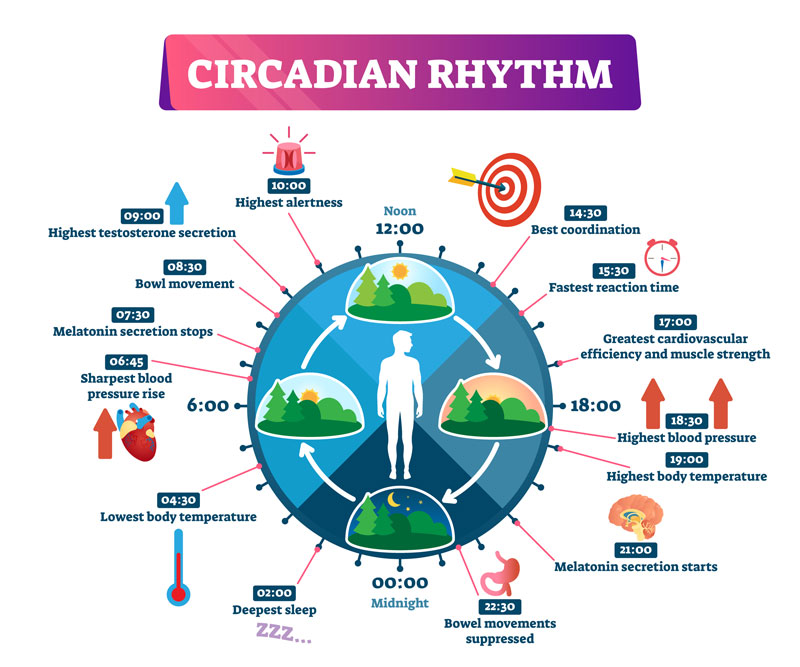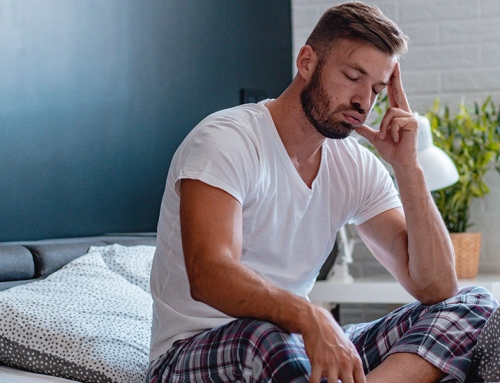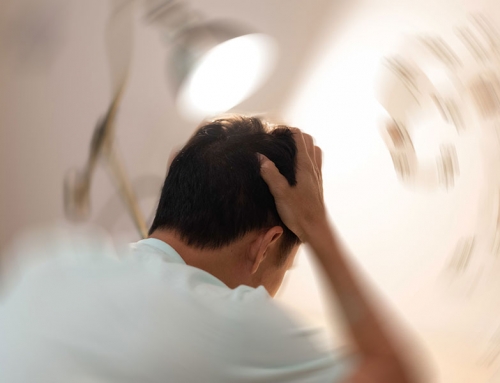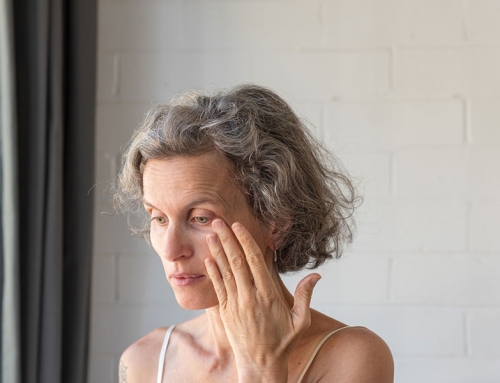You may have an image of the ideal morning—waking up refreshed and smiling to a sunlit room, a cool breeze, and perhaps a coffee brought to you by a loving partner. But for most of us, the reality is that waking up usually involves passing through a stage of sleep inertia.
Sleep inertia is a normal part of the waking process, caused by the fact that our brains prefer a gradated transition between two states of being. As your mind kicks into gear and your body slowly becomes mobile, you can feel grogginess, disorientation, irritability, and a sense of confusion.
For most people, inertia only lasts a few minutes, although according to this article by sleep specialists at the University of South Australia, it can sometimes last for up to an hour.
And while sleep inertia might explain the tiredness we experience at the point of waking, many of us feel that there’s something bigger going on—that is, no matter how many hours of sleep we get, we still wake up feeling tired and groggy.
This article is designed to get you thinking about possible wider causes behind extended periods of tiredness and discomfort after waking up.
Understanding your circadian rhythm
Table of Contents
(Night owls and morning larks are real things)
Circadian rhythms are the internal sleep-wake cycles our bodies used to keep us on a (roughly) 24-hour schedule. Informed by an internal body clock—which is itself informed by environmental factors such as the level of ambient light—circadian rhythms control the release of hormones such as melatonin into the bloodstream, help us to feel sleep and alert at the appropriate times.
However, internal body clocks and circadian rhythms are not set identically across all people. Studies on Delayed Sleep Phase Disorder (DSPD) prove that, for genetic and environmental reasons, some people have a longer or later circadian rhythm, meaning that their bodies remain in ‘sleep mode’ while the rest of us are busy waking. In fact, recent research suggests that some particularly early-risers are using a 20-hour internal clock, rather than the standard 24.
Which all goes to say that, if you’re finding it hard to wake up in the morning, it’s worth considering DSPD—whether it’s a genetic profile that you’ve always had to deal with, or whether a change in your behavior has resulted in a shifted body clock.
While there’s an extent to which our circadian rhythms are determined by genetics and deeply ingrained habits during childhood, there are things you can do to push the hands forward on your internal clock. Melatonin supplements are increasing in popularity and can be used to artificially introduce the hormone into the body at an earlier time of the day, thereby encouraging the body to move to an earlier wake-sleep schedule.

What are you waking up to?
Are you looking forward to your day?
The most obvious symptom of anxiety or low mood on waking is feelings of worry and stress. But finding it difficult to wake up in general can also be a more physical manifestation of a dip in your mental health.
According to Healthline, physical symptoms of anxiety upon waking up in the morning include:
- Irritability
- Fatigue
- Tight chest, tense muscles, or difficulty breathing
- Difficulty with concentration and/or a feeling of blankness
Due to this, it’s worth taking time to think about your feelings towards your day ahead. Do you find it as difficult to wake up on the weekends? Are you dreading the morning alarm? Is a particular appointment or work meeting occupying your mind? Or, are you one of many people who suffer from the infamous Sunday scaries?
If so, it’s very possible that your body is reacting to this stress by encouraging you to stay in bed for as long as possible when you wake up.
Medical explanations
Common sleep disorders and conditions
There are several common underlying medical conditions that can significantly affect how awake you feel in the morning. While it’s likely that you’ll be aware of any insomnia-like symptoms, other disorders can go unnoticed for a long time, only diagnosed when side effects such as difficulty waking up become severe.
Sleep apnea is a condition characterized by difficulty breathing during sleep. John Hopkins describes apnea as blocked or collapsed airways due to pressure from surrounding muscles and soft tissues, which can result in patients stopping breathing for 20 to 30 seconds. This may be enough to wake you up and disrupt your sleep, but not long enough for you to remember waking by the time morning rolls around.
Another subtle but disruptive sleep condition is Restless Leg Syndrome (RLS). Like sleep apnea, RLS is likely to wake you up multiple times during the night, but for short enough intervals that you don’t recall being woken.
How’s your sleep hygiene?
A good morning starts at bedtime
If your mattress and pillow are not supporting your sleep, waking up feeling refreshed and ready for the day will always be difficult. There’s no one-size-fits-all when it comes to bed hardware, but we should all be sleeping on a mattress that disperses pressure away from the shoulder and hips—and a pillow that follows the contours of our neck without pushing the head up. Refer to our complete guide on how to find the best mattress that suits your needs.
Likewise, the behaviors you engage during the evening can have effects that carry over into the next day. Using digital devices with LED screens exposes your eyes to daylight-mimicking blue light, which can affect the circadian rhythms if repeated over days and weeks.
The Division of Sleep Medicine at Harvard Medical School has produced a list of twelve sleep hygiene tips, including the recommendation to ease the transition between your day and bedtime. Relaxing activities such as reading and yoga help signal sleep to the brain, while a bath creates a fluctuation in body temperature that promotes drowsiness.
Let’s talk about exhaustion
Being productive requires self-care
The truth is that our modern lifestyles are not conducive to good sleep and morning routines. While we may be more aware than ever of the requirements of mental and physical health, a global economy and high workloads mean that we often don’t practice what we preach.
A survey on burnout among US workers found that over three-quarters of respondents experience symptoms of stress and exhaustion in their current role. This reveals the importance of tracking wellness and noticing those moments when you need to step back and take some time to recover.
On the other hand, it’s well reported that regular exercise is a fundamental precursor for good sleep. If you’re not currently exercising most days of the week (every day, ideally) then it’s worth thinking about upping your output. Any form of cardio—whether it’s running, swimming, or an online workout video—will help burn off the day’s excess energy, helping you to feel adequately tired at bedtime, thereby encouraging positive sleep and waking.
Summary
Those who find it hard to wake up, no matter how much sleep they get may be genetically disposed to Delayed Sleep Phase Disorder.
But anxiety about work or have enough time in your day can also manifest itself as a difficulty in getting out of bed.
If you suspect an underlying medical cause is behind you trouble waking, it’s important to seek a consultation for common conditions such as sleep apnea and restless leg syndrome.
Perhaps the most common reason behind a difficult morning is poor sleep hygiene. Blue light from device screens and poor quality mattresses can lower the quality of your sleep, no matter the quantity.
Finally, it’s important to keep tabs on your overall energy levels. With so much to do in our daily lives, burnout and exhaustion are common, and can easily creep up on you.





